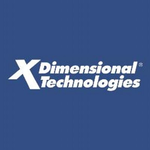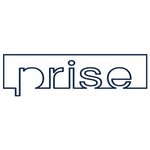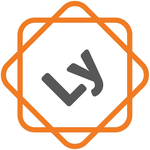Description

Nexsure Agency Management

Qover
Comprehensive Overview: Nexsure Agency Management vs Qover
Sure, here's an overview that covers Nexsure Agency Management and Qover, focusing on their primary functions, target markets, market share, user base, and key differentiating factors:
Nexsure Agency Management
a) Primary Functions and Target Markets:
-
Primary Functions: Nexsure Agency Management is a comprehensive agency management system designed for insurance agencies. It offers a range of functionalities including customer relationship management (CRM), policy administration, accounting and financial management, sales and marketing tools, document management, and reporting and analytics. The platform is cloud-based, allowing for easy access and collaboration among team members.
-
Target Markets: Nexsure primarily targets small to mid-sized insurance agencies and brokerages seeking to streamline their operations and enhance customer service. It is suitable for a variety of insurance providers, including those dealing in personal lines, commercial lines, and specialty lines.
b) Market Share and User Base:
-
Market Share: While specific market share figures can fluctuate and may not be publicly available, Nexsure is recognized as a competitor in the agency management space, though it may not have the same level of market penetration as some larger players like Vertafore or Applied Systems.
-
User Base: Nexsure has cultivated a devoted user base among small to mid-sized agencies, appreciated for its comprehensive feature set and cloud-based convenience. However, the user base might be smaller compared to more established competitors in the industry.
c) Key Differentiating Factors:
-
Cloud-Based Platform: One of the key advantages is that Nexsure is entirely cloud-based, offering flexibility and ease of access without the need for extensive IT infrastructure.
-
Comprehensive Feature Set: The wide array of integrated functionalities provides agencies with an end-to-end solution, reducing the need for multiple disparate systems.
-
Customization and Scalability: Nexsure is known for its flexibility, supporting customization to meet specific agency needs and scalable to accommodate growth.
Qover
a) Primary Functions and Target Markets:
-
Primary Functions: Qover is an insurtech company that offers embedded insurance solutions, providing digital insurance products that can be integrated directly into partners' ecosystems. Its offerings include various types of insurance like mobility, e-commerce, and freelance insurance. The platform revolves around providing seamless API-based integration to offer insurance in a convenient, user-friendly manner.
-
Target Markets: Qover's target markets include tech companies, online platforms, and businesses looking to incorporate insurance solutions into their offering, spanning sectors like fintech, e-commerce, and mobility. It's ideal for businesses that want to enhance their service offering by embedding insurance in their digital platforms.
b) Market Share and User Base:
-
Market Share: As an insurtech company, Qover operates in a niche market focusing on innovative insurance distribution methods. It may not hold a substantial share of the traditional insurance market, but it is a notable entity within the embedded insurance segment.
-
User Base: Qover partners with digital platforms and companies across Europe and other regions, providing insurance solutions to end-users integrated within these partners' ecosystems. Its user base is indirect, consisting of customers of its business partners.
c) Key Differentiating Factors:
-
Embedded Insurance Model: Qover's core strength lies in its ability to seamlessly integrate insurance products within digital platforms, enhancing customer experience without disrupting the primary service flow.
-
API-Driven Solutions: Qover emphasizes technology-driven solutions, utilizing APIs to offer flexible, scalable integration for partners.
-
Focus on Partnerships: Unlike traditional insurance players, Qover operates primarily as a partner to other businesses, offering B2B2C solutions that add value by incorporating insurance into existing services.
Comparison and Contrast:
While both Nexsure and Qover operate in the insurance space, they focus on fundamentally different areas and serve diverse customer bases. Nexsure offers a robust agency management platform, ideal for internal operations of insurance agencies, whereas Qover provides innovative embedded insurance solutions for companies looking to integrate insurance seamlessly into their digital services.
In terms of market share and user base, Nexsure competes as an agency management system with other similar platforms, while Qover establishes itself in the burgeoning insurtech space, focusing on modern distribution methods. The primary differentiation lies in their business models and target markets, with a clear technological slant in Qover's approach compared to the operational focus of Nexsure.
Contact Info

Year founded :
Not Available
Not Available
Not Available
Not Available
Not Available

Year founded :
2016
+32 2 588 25 50
Not Available
Belgium
http://www.linkedin.com/company/qover
Feature Similarity Breakdown: Nexsure Agency Management, Qover
When comparing Nexsure Agency Management and Qover, it is crucial to understand that they serve different niches within the insurance and risk management industry. Nexsure Agency Management is primarily focused on insurance agencies, providing robust tools for managing agency operations, while Qover is a digital insurance platform offering embedded insurance solutions primarily for tech companies and digital platforms. Given their different focuses, they share some similar core features but also have unique attributes aligned with their distinct markets.
a) Core Features in Common:
-
Policy Management:
- Both systems offer robust policy management capabilities that allow users to create, modify, and track policies efficiently.
-
Customer Relationship Management (CRM):
- They include CRM functionalities that help manage customer interactions and data.
-
Reporting and Analytics:
- Both platforms provide reporting and analytics tools to help users gain insights into their operations.
-
Integration Capabilities:
- They have integration capabilities with various third-party applications, such as accounting software and other insurance platforms.
-
Document Management:
- Both systems offer document management features to store and manage important documents.
b) User Interface Comparison:
-
Nexsure Agency Management:
- Typically offers a more traditional interface designed for users familiar with the insurance industry. The focus is on functionality and efficiency with dashboards tailored for agency operations.
- It often includes detailed menus and options suited to a comprehensive range of insurance management tasks.
-
Qover:
- As a digital-first solution, Qover likely provides a more modern and user-friendly interface designed for ease of use and rapid deployment. It emphasizes simplicity and integration with other digital systems.
- It may have fewer layers of options but offers a smoother, more intuitive user experience geared toward tech-savvy users and non-traditional insurance entities.
c) Unique Features:
-
Nexsure Agency Management:
- Commission and Financial Tracking: Advanced features to track agency commissions and financial operations.
- Renewal and Expiration Management: Tools to manage policy renewals and expirations more effectively, essential for insurance agencies.
-
Qover:
- Embedded Insurance Solutions: Unique capability to offer embedded solutions that allow digital platforms to integrate insurance products seamlessly.
- Instant Underwriting and Claims Processing: Focus on instant decision-making and fast processing suited to the digital economy.
- API-first Approach: Strong API capabilities designed for integration into various digital ecosystems, enabling a truly flexible insurance offering.
Overall, while both Nexsure Agency Management and Qover provide essential insurance-related features, their differing focuses and customer bases result in unique features that set them apart. Nexsure is well-suited for traditional agency management, while Qover offers a modern, embedded insurance product for digital platforms.
Features

Not Available

Not Available
Best Fit Use Cases: Nexsure Agency Management, Qover
Nexsure Agency Management
a) Best Fit for Nexsure Agency Management
Nexsure Agency Management is specifically designed to cater to the needs of insurance agencies and brokerage firms. It is particularly well-suited for:
- Independent Insurance Agencies: Agencies that manage a diverse portfolio of insurance products and need a comprehensive solution to streamline their operations, including client management, policy administration, and reporting.
- Large Brokerages: Organizations with complex operations that require robust data management capabilities, scalability, and integration with multiple insurance carriers.
- Multi-location Agencies: Businesses that operate across various locations and need centralized control with decentralized access for sales and service teams.
- Agencies Looking for Cloud-Based Solutions: With its cloud-native architecture, Nexsure is ideal for agencies that prefer a SaaS model for accessibility, flexibility, and reduced IT overhead.
d) Catering to Industry Verticals and Company Sizes
Nexsure Agency Management is versatile in catering to small, mid-sized, and large insurance agencies. Its scalability makes it suitable for growing businesses, while its comprehensive feature set addresses the complexities of larger enterprises. Additionally, the solution is industry-specific, focusing primarily on the insurance vertical, providing tools tailored for insurance workflows.
Qover
b) Preferred Scenarios for Qover
Qover is a digital insurance platform that excels in embedded insurance solutions, making it ideal for:
- Digital Platforms and Marketplaces: Businesses that want to integrate insurance offerings seamlessly into their digital platforms, such as e-commerce websites or ride-sharing services.
- Startups and Tech Companies: Organizations looking to innovate with digital insurance products quickly and efficiently, benefiting from Qover's API-driven approach.
- Enterprises with International Reach: Companies that require insurance solutions that can be easily expanded across different countries and adapted to local regulations.
- Businesses Seeking Customizable Insurance Products: Firms that want to offer tailored insurance products to their customers without investing heavily in development and compliance efforts.
d) Catering to Industry Verticals and Company Sizes
Qover is highly adaptable to various industry verticals, particularly those that are digitally-focused or tech-driven, such as fintech, travel, e-commerce, and mobility sectors. Its use of an API-centric model allows companies of all sizes, from startups to large enterprises, to easily embed insurance into their products and services, offering flexibility and customization without the complexity of traditional insurance models.
Pricing

Pricing Not Available

Pricing Not Available
Metrics History
Metrics History
Comparing teamSize across companies
Conclusion & Final Verdict: Nexsure Agency Management vs Qover
To provide a conclusion and final verdict for Nexsure Agency Management and Qover, let's compare these two products considering various factors such as features, usability, customer support, scalability, cost, and the specific needs of their target users.
a) Best Overall Value
The determination of the best overall value between Nexsure Agency Management and Qover largely depends on the specific needs of the user. However, if we were to generalize:
-
Nexsure Agency Management: This is likely to offer the best value for insurance agencies looking for a robust, all-in-one solution to manage their operations, including policy management, CRM, accounting, and reporting. Its extensive features are highly beneficial for agencies that require a comprehensive platform to streamline their workflows.
-
Qover: Qover may offer better value for users looking for a flexible, tech-driven insurance platform that allows businesses to easily integrate insurance products into their existing services. It is ideal for companies that need a seamless integration and want to innovate within insurtech through digital advancements.
b) Pros and Cons
Nexsure Agency Management:
-
Pros:
- Comprehensive suite of tools designed specifically for managing an insurance agency.
- Strong customer relationship management capabilities.
- Integrated accounting features tailored to insurance operations.
- Detailed reporting and analytics to facilitate data-driven decisions.
-
Cons:
- Can be complex and require a learning curve for new users.
- May involve higher costs, especially for small agencies or businesses that might not need all features.
- Less focus on integration with modern tech ecosystems compared to Qover.
Qover:
-
Pros:
- Highly flexible and easily integrable into existing digital ecosystems.
- Innovative approach to insurance through the use of advanced technology.
- Scalable solution ideal for companies seeking to expand their digital offering.
- User-friendly interface designed with modern businesses in mind.
-
Cons:
- Might lack the deep, specialized features needed by traditional insurance agencies.
- May not cover all operational aspects specifically tailored to insurance agencies like Nexsure does.
- Potentially limited support for complex traditional insurance products.
c) Recommendations for Users
-
Assess Business Needs: Users should perform a thorough needs analysis to understand what specific features are necessary for their business operations. Traditional insurance agencies may benefit more from Nexsure, while tech companies, insurtech start-ups, or digital-first businesses may find Qover to be a better fit.
-
Consider Scalability and Integration: If the goal is to integrate insurance within a broader digital strategy or offer embedded insurance services, Qover offers strengths in ease of integration and scalability. For agencies primarily focused on optimizing current operations, Nexsure provides a robust toolset.
-
Budget and Cost Analysis: Consideration of budget constraints is crucial. Nexsure's comprehensive features may come at higher costs, so evaluate if all these features are necessary. Qover may offer cost efficiency through its tailored integration services, possibly lowering long-term operational costs.
-
Test and Evaluate: If possible, users should engage in trials or demos of both platforms to get a hands-on experience of how each would work within their specific operational context. Engaging with customer support during this phase can also be telling of future service quality.
In conclusion, both Nexsure Agency Management and Qover have distinct advantages and are suited to different use cases. The choice between them should be guided by specific business demands, operational priorities, and future growth strategy.
Add to compare




